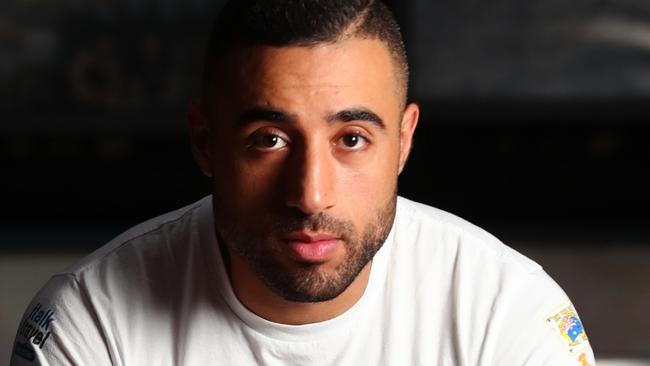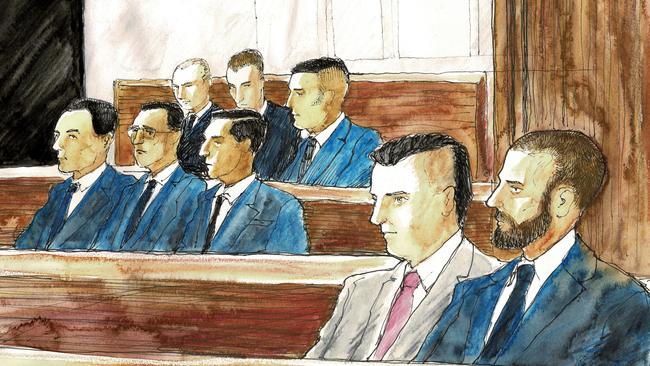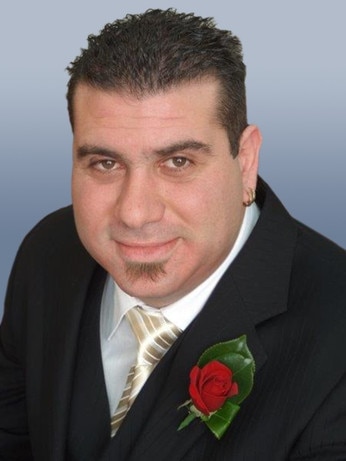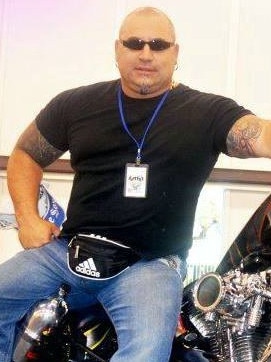Olympic hopeful boxer Musa Alzuain was not involved in murder of Jason De Ieso, defence barrister tells jury
An aspiring boxer who is alleged to have fired the shot that killed Jason De Ieso cannot be proved to have been at the scene of the crime, his lawyer has told a murder trial.

Police & Courts
Don't miss out on the headlines from Police & Courts. Followed categories will be added to My News.
An Olympic hopeful boxer standing trial accused of firing the shot that killed innocent man Jason De Ieso could not be proved to be among those involved in the attack, a court has heard.
Prosecutors allege Musa Alzuain, 30, of St Morris, fired the fatal round when a group of men stormed into Mr De Ieso’s Pooraka workshop and shot him dead at close range on November 21, 2012.
In his closing address Andrew Fowler-Walker, for Musa Alzuain, told the Supreme Court jury they “could not find it proved that Musa was ever at a meeting” alleged to have occurred prior to the shooting, “let alone present at Pooraka”.

Instead, he told the jury it was possible his client was “at home that day with his brother Husain cleaning up the damage to his home from the fire bomb attack” at his family home the night before.
Prosecutors had told the jury that Mr De Ieso was murdered in a case of mistaken identity amid an 18-month long “cascading” bikie war between rival bikie gangs, the Finks and Hells Angels, which had led to the firebombing.
It has been alleged senior Fink Charles Bonnici, who was known to frequent the workshop, was the intended target of the attack.


Musa is standing trial alongside his brothers Husain Alzuain, 35, of Goodwood and Mohamed Alzuain, 32, of Mile End along with five others; Daniel Mark Jalleh, 34, of Clovelly Park, Ross William Montgomery, 38, of Andrews Farm, Seywan Moradi, 36, of Walkley Heights, Kyle Lloyd Pryde, 35, of Adelaide and Nicholas Sianis, 36, of Beverley.
Musa Alzuain is the only one among the men who is not alleged to have been a member of the Hells Angels at any stage because of his “quest” to compete at the Olympics as a boxer.
A ninth man prosecutors allege was among the men has since died.
Each of the accused has pleaded not guilty to a charge of murder.
Mr Fowler-Walker told the jury the prosecution case was “at best, a circumstantial one” and that the prosecution’s key witness, who cannot be identified, was “dishonest, unreliable and self-interested”.
He warned the jury they could not convict the men standing trial solely because of their links to the Hells Angels and that his client could also not be convicted “just because he hung around with members of the Hells Angels”.
“The purpose of this prosecution cannot be the destruction of the Hells Angels as an outlaw motorcycle gang at any cost, no matter whether police get the right people or not,” Mr Fowler-Walker said.
“It cannot be the case that any member will do, because that is not the country we chose to live in. We don’t persecute people just because of whom they choose to associate with.”
Mr Fowler-Walker said innocent people “must be protected from being wrongfully convicted”.
“Knowing the connection that these men have to the club, you will have to work twice as hard, I suggest, to make sure that your mind does not exercise unfair prejudice against them and I implore you to do so,” he said.
He told the jury identifying the men based on the CCTV available was “fraught with danger”.
“If you can’t identify on the CCTV who was who, how can you safely convict any of them?,” Mr Fowler-Walker said.
“You run the risk of convicting an innocent person who didn’t go to Pooraka”.
Mr Fowler-Walker also read aloud a “lucky list of 15 men” who he said could have instead been among those responsible for murdering Mr De Ieso, but who were not among those in the dock.
The names included other men who were affiliated with the Hells Angels, who he said had similar features to those captured on CCTV.
“There is an innocent man deceased, Mr De Ieso, it is tragic and you might feel a huge pressure to convict whoever is charged because of that fact alone but that would be quite unfair, ladies and gentlemen,” he said.
Earlier, Grant Algie KC, for Mohamad Alzuain, had also told the jury to be use “great caution” when considering the evidence of the key witness, who he said had given “flawed, false evidence to secure a conviction”.
He told the jury his client had not been involved in any of the prior violence between the two gangs and there was “at least a reasonable possibility that whoever the people were that went there – he wasn’t one of them”.
“He did not involve himself with retribution and violence,” he said.
He was a prospect of the Hells Angels at the time of Mr De Ieso’s murder – and became a member in July 2013 before parting ways with the gang in November 2014.
He told the jury “don’t just be assuming that somebody who is associated with, affiliated or a member of a particular organisation necessarily embraces their perhaps broad culture and acts upon it”.
He used the example of Nazi Oskar Schindler, who he said was credited of saving the lives of hundreds of Jewish people during the Holocaust.
He described the Nazis as “one of the most evil regimes of the 20th Century when the Nazi German sought to exterminate the Jewish population but there were good, decent Nazis who didn’t – didn’t affiliate themselves with Adolf (Hitler).”
Defence cases for the other accused will continue into next week. The trial continues.




